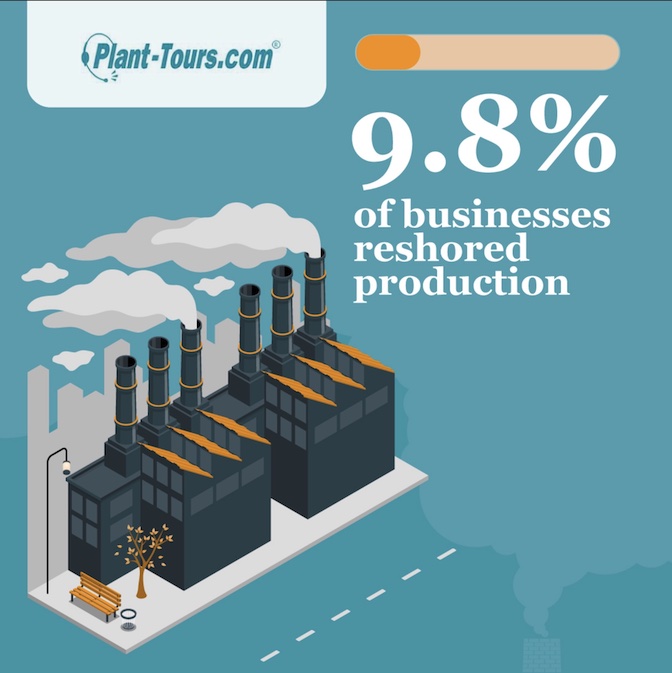CHARLOTTE, N.C. – A recent PlantTours survey of industrial/manufacturing sector execs (see full report here) found Less than 10% of U.S. companies have reshored production in response to tariffs—despite years of political focus on bringing manufacturing home. That’s one of several insights from the new survey of 500 professionals across manufacturing, construction, transportation, warehousing, and other industrial sectors.
 The report breaks down what’s happening across three key areas:
The report breaks down what’s happening across three key areas:
• operational impacts on the ground;
• gaps between business experience and public narrative; and
• how different sectors and regions are adapting—or struggling.
Key Takeaways
• 55% of manufacturing professionals say tariffs have reduced their profit margins by 10–15%;
• 75% of industrial businesses are passing tariff-related cost increases directly to consumers;
• 45% of companies have reduced their workforce due to tariff-related cost pressures;
• Only 9.8% of companies have reshored production despite tariff incentives;
• Nearly 60% of respondents believe the media misses the mark about the impact of tariffs;
• 38% cite inflation—not tariffs—as their biggest business challenge;
• 30% of businesses saw unexpected benefits like customer gains or improved supply chains;
• 70% of veteran business leaders are pessimistic about the long-term effects of tariffs; and
• the Midwest reported the highest rate of negative impact—with 50% expressing a negative outlook.
Tariffs Are Reshaping Manufacturing and Construction With Supply-Side Profit Margins Getting Hit Hard
Among manufacturing respondents, 55% reported that tariffs had cut profit margins by 10–15%. These are not mild fluctuations. They represent major hits to operating income. Many business leaders described this impact as a slow bleed on profitability, especially in sectors already operating on tight margins. “We’ve had to renegotiate contracts mid-project,” one construction professional noted. “Steel prices alone blew our estimates out of the water.”

